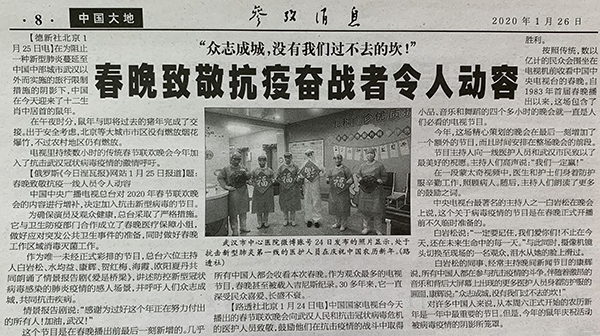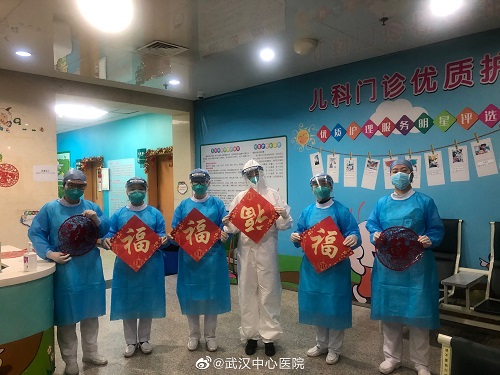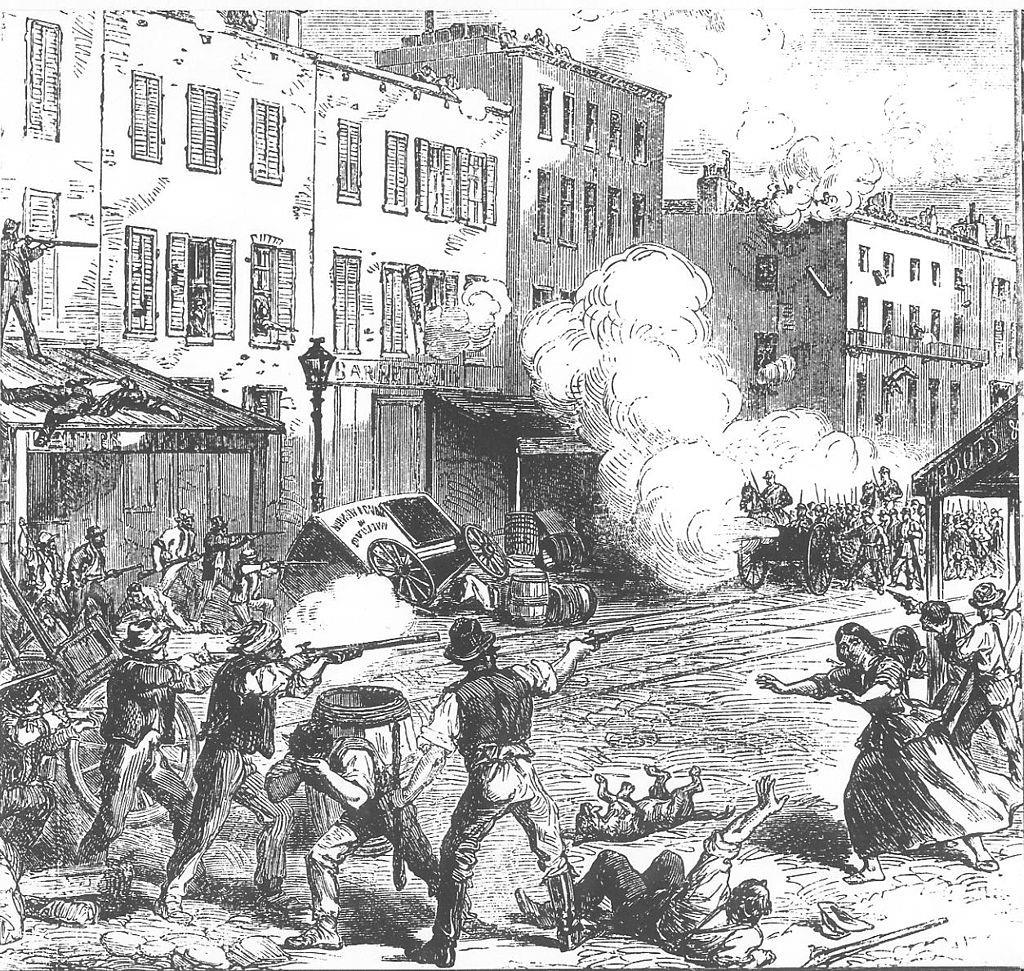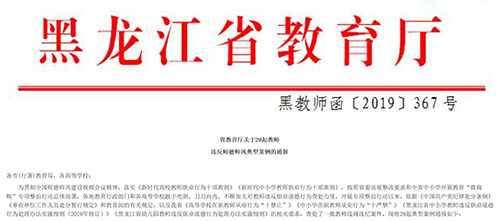Deepening reform in an all-round way is the fundamental driving force for promoting Chinese modernization.
On July 30th, General Secretary of the Supreme Leader presided over the the Political Bureau of the Communist Party of China (CPC) Central Committee meeting to analyze and study the current economic situation and work. The meeting stressed: "We should take reform as the driving force to promote steady growth, adjust the structure and prevent risks, give full play to the traction role of economic system reform, and launch a number of mature and sensible reform measures in time."
"this year is another important year for comprehensively deepening reform." In the face of arduous and complicated reform tasks, the General Secretary of the Supreme Leader personally planned, personally deployed and personally promoted the comprehensive deepening of reform work, guided new practices and led new changes with new reform theories, made efforts to enhance the systematicness, integrity and synergy of reform, and made great efforts to make major institutional innovations. The reforms in key areas were carried out at a steady pace, stimulating the endogenous motivation and innovation vitality of the whole society, and providing strong support for the overall stable and steady progress of the national economy.
The Third Plenary Session of the 20th Central Committee of the Communist Party of China built "four beams and eight pillars" to further comprehensively deepen reform and promote Chinese-style modernization, drew a magnificent, clear and concrete blueprint for reform, and released a strong signal of unswervingly holding high the banner of reform and opening up.
"Reform must be re-planned, and it must be re-implemented." Under the strong leadership of the CPC Central Committee with the Supreme Leader as the core, all localities and departments have further deepened reforms in an all-round way around promoting Chinese modernization, intensified macro-control, deepened innovation-driven development, deeply tapped the potential of domestic demand, constantly enhanced new kinetic energy and advantages, enhanced the vitality of business entities, stabilized market expectations, enhanced social confidence, enhanced sustained economic recovery, effectively guaranteed and improved people’s livelihood, maintained social stability, and unswervingly completed the objectives and tasks of economic and social development throughout the year.
Increase the momentum through reform, persist in striving for progress while maintaining stability, focus on steady growth, and lay a solid foundation for economic development throughout the year.
Reform is the driving force of development, and development is the purpose of reform.
General Secretary of the Supreme Leader pointed out: "To further deepen the reform in an all-round way, we should highlight the problem orientation, focus on solving the problems of blocking points that restrict the construction of a new development pattern and promote high-quality development, the pain points and difficulties in the development environment and people’s livelihood, and the hot issues that are contrary to social fairness and justice, effectively prevent and resolve major risks, and constantly add momentum and vitality to economic and social development."
Since the beginning of this year, in the face of the complicated and changeable domestic and international situation, all localities and departments have paid attention to the breakthrough and leading role of reform, actively introduced reform measures conducive to stabilizing growth, adjusting structure and preventing risks, and relied on reform to add momentum to development. China’s economy has continued to rebound to a good trend, and high-quality development has taken new steps.
— — Expand profitable investment and give play to the traction role of reform.
Machines in the CNC machining center roar, the intelligent production line runs at high speed, the mechanical arm moves up and down, left and right flexibly, and rows of hydraulic components flow off the production line in an orderly way … … After introducing three automatic production lines and updating 900 sets of high-end equipment such as CNC lathes, the production efficiency of Zhongwei Zhuote Hydraulic Technology Co., Ltd., located in Linxi County, Xingtai City, Hebei Province, has increased by 50%.
In the first half of this year, the tax department of Xingtai City implemented the structural tax reduction and fee reduction policy in detail, so that Zhongwei Zhuote enjoyed the deduction of R&D expenses, the reduction of corporate income tax for high-tech enterprises, plus the deduction of value-added tax and export tax rebate. The tax reduction amount on the tax list is very considerable.
The more investment, the more tax reduction, the positive pace of transformation and upgrading has been "rewarded" by the tax reform, and enterprises have increased their horsepower. "The tax incentives in the first half of the year were all invested in the research and development of the bent shaft hydraulic pump that is urgently needed in the current market, and an additional 20 million yuan was invested in new equipment to achieve full coverage of high-end CNC equipment this year." Han Shujuan, head of the company, said.
A list of taxes and fees, recording the strength of reform.
Comprehensively deepening reforms requires precise efforts. The reform of value-added tax has continued to deepen, the tax refund system has been continuously improved, and the structural tax reduction and fee reduction policy that focuses on supporting scientific and technological innovation and manufacturing development has been accelerated … … The burden reduction policy allows more enterprises to go into battle lightly. In April this year, the "Guidelines on Major Tax and Fee Preferential Policies for Supporting the Development of Manufacturing Industry in China" was issued, which provided a clear list for manufacturing business entities and helped them to better enjoy preferential tax and fee policies.
Deepen reform in an all-round way and pay attention to system integration. China pays great attention to "hard investment" and "soft construction" as a whole, and combines project construction with supporting reforms. It not only compiles perfect plans, strengthens project management, creates a number of landmark projects, but also optimizes system supply, and breaks deep-seated obstacles with reform methods and innovative measures.
The deeper the reform, the more attention should be paid to coordination. Focusing on stabilizing expectations, growth and employment, China has strengthened the countercyclical and cross-cyclical adjustment of macro policies, strengthened the coordination of fiscal, monetary, employment, industrial, regional, scientific and technological, environmental protection and other policies, incorporated non-economic policies into the consistency assessment of macro policy orientation, strengthened policy coordination, ensured concerted efforts and formed synergies, fully mobilized the enthusiasm of business entities, stimulated the endogenous motivation of economic development, and formed synergies to jointly promote high-quality development. In the first half of the year, investment in fixed assets increased by 3.9% year-on-year, of which investment in manufacturing increased by 9.5%, which promoted steady growth of investment, structural optimization and improvement of quality and efficiency, laying a solid foundation for steady growth.
— — Stimulate potential consumption and make good use of the key variable of reform.
Open and log in to the mobile phone application of Zheli Office, enter the item of "Registration of Self-employed Workers (Flexible Employees)", and click "Online Processing" … … In just 3 minutes, Ms. Wang, a domestic hourly worker working in Dongyang City, Zhejiang Province, completed the insurance procedures for flexible employees.
A social security bill, recording the temperature of reform.
Consumption is the "main engine" that drives economic growth. The reform of the social security system has firmly grasped the bottom line of people’s livelihood, making residents more daring to spend and willing to spend. The income distribution system has been further improved, and social security systems for flexible employees, migrant workers and new employment forms have been continuously improved in various localities, and the adjustment mechanism for income redistribution has been strengthened. At the same time, the business environment is constantly optimized to stabilize employment and income by promoting the development of small and medium-sized enterprises and individual and private economies & HELIP; … A series of reform measures have promoted "lowering" and "expanding". In the first half of the year, the per capita disposable income of the national residents actually increased by 5.3%, which was basically in sync with the growth of GDP, and the per capita consumption expenditure actually increased by 6.7%.
Residents’ income grew steadily and their consumption level continued to improve. In the first half of the year, final consumption expenditure boosted GDP growth by 3.0 percentage points. The long-term mechanism for expanding consumption has been gradually improved, and the basic role of consumption in economic development has been further enhanced.
Expand consumption to do "addition" and limit consumption to do "subtraction". "No new automobile purchase restriction measures shall be added in all regions, and the automobile purchase restriction measures shall be optimized according to local conditions in the regions where the purchase restriction has been implemented" and "Allow relevant cities to cancel or reduce the housing purchase restriction policy" … … Restrictive measures have been continuously reduced, which has "loosened" residents’ consumption.
— — Accelerate the cultivation of new kinetic energy of foreign trade and release the development dividend of reform.
A remanufactured engine, the cost of which is only 60% of that of the new engine, was successfully cleared and transported to Volvo Construction Equipment (China) Co., Ltd. in Pudong New Area, saving 40% of the cost for the enterprise — — China’s first import of remanufactured products landed in Shanghai. Breaking the import restrictions on used and second-hand mobile phones, at present, some pilot free trade zones have relaxed the import of 62 kinds of remanufactured products such as automobile engines, boosting the new trend of green trade.
A customs declaration, recording the depth of reform.
Reform should be deepened, and opening up needs to be deepened and broadened. With the relaxation of the import of remanufactured products and a series of new achievements, the first batch of pilot measures for connecting the Pilot Free Trade Zone with international high-standard rules have been fully implemented, which has led to a steady increase in the quality of foreign trade. In the first half of the year, the total import and export value of goods trade increased by 6.1% year-on-year, a record high in the same period of history.
Market access reform enhances the "magnetic attraction" to foreign investment. The negative list of service trade "goes" to the whole country, completely cancels the restrictions on foreign investment access in the manufacturing sector, and promotes the orderly expansion and opening up of telecommunications, Internet, medical care and other fields … … Market access was further relaxed, allowing more foreign companies to share the dividends of China’s reform and opening up. In the first half of the year, the number of newly established foreign-funded enterprises was nearly 27,000.
Since the beginning of this year, "taking system construction as the main line", various reforms have strengthened coordination, the construction of a high-standard market system has been steadily advanced, the system and mechanism for market-oriented allocation of factors have been improved, the formation of a unified national market has been accelerated, all kinds of ownership economies have participated in market competition more fairly, and market vitality has flowed fully, laying a solid foundation for achieving the expected goals of economic development throughout the year.
Deepen reform in an all-round way, with a clear direction and a clear road. "It is necessary to continue to work hard in an all-round way to make the reform measures comprehensively cover the outstanding problems that need to be solved to promote Chinese modernization; We must continue to use real strength in deepening, highlight the focus of the economic system, and strive to break down deep-seated institutional and institutional obstacles and structural contradictions. "
The Ministry of Finance will speed up the improvement of the budget system and the tax system, and use precious financial funds in the critical areas of development; The Ministry of Human Resources and Social Security will improve the labor rights protection system that adapts to flexible employment and new employment forms, and create a fair employment environment; The Ministry of Commerce will improve the high-level opening-up system and mechanism, enlarge the open cake and lengthen the list of cooperation … … In the second half of the year, relying on reform and opening up to enhance the endogenous driving force for development, all localities and departments have made a good list of tasks and launched a number of reform measures that are mature and sensible, giving birth to strong momentum for unswervingly fulfilling the goals and tasks of economic and social development throughout the year.
Add vitality through reform, persist in promoting stability through progress, vigorously optimize the structure, and shape new development momentum and new advantages.
The reform trend is strong, and the tide of innovation is even stronger.
General Secretary of the Supreme Leader stressed: "To develop new quality productive forces, we must further deepen reform in an all-round way and form a new type of production relationship that is compatible with it. It is necessary to deepen the reform of the economic system and the scientific and technological system, focus on opening up the blocking points that constrain the development of new quality productive forces, establish a high-standard market system, and innovate the allocation of production factors so that all kinds of advanced and high-quality production factors can flow smoothly to the development of new quality productive forces. "
The "Decision" of the Third Plenary Session of the Twentieth CPC Central Committee put forward: "Improve the system and mechanism of developing new quality productive forces according to local conditions."
Since the beginning of this year, all localities and departments have anchored to "develop new quality productivity according to local conditions", accelerated the transformation mode, adjusted the structure, improved quality and increased efficiency, continued to deepen the structural reform on the supply side, accelerated the construction of new production relations that are compatible with new quality productivity, constantly opened up new fields and new tracks for development, constantly shaped and developed new kinetic energy and new advantages, and promoted Chinese modernization with high-quality development.
— — Strengthen the supply of new fields and new track systems, and enhance the innovation power through economic system reform.
In Xilihu International Science and Education City, Nanshan District, Shenzhen City, Guangdong Province, the laboratory and production line are very close. Nanshan District has set up a proof-of-concept platform here to help technicians cross the laboratory to the "first mile" of marketization.
"Proof of concept helps us to transform scientific research results in a small scale first, and improve the success rate of subsequent substantive transformation. The platform provides accurate assistance around the whole chain of proof of concept, pilot-scale ripening and achievement transformation, not only for seed funds, but also for docking resources." Cai Chao, founder of Nanke Hegu Technology (Shenzhen) Co., Ltd. said that the platform helped the company to accelerate the industrialization of hydrogen production catalyst technology.
Focusing on "strengthening the dominant position of scientific and technological innovation of enterprises", all localities and departments have made great efforts to open up the blocking points that constrain enterprise innovation, innovate the allocation methods of production factors, and let all kinds of advanced and high-quality production factors flow smoothly to all kinds of business entities, so that the "tangible hand" of the government and the "invisible hand" of the market can jointly cultivate and drive new quality productivity.
The Science and Technology Department of Henan Province introduced measures to vigorously cultivate innovative leading enterprises and enhance industry consolidation’s ability; Fujian Province promotes the popularization and application of the first set of technical equipment; Around the three leading industries of integrated circuit, biomedicine and artificial intelligence, Shanghai has set up an industrial investment parent fund with a total scale of 100 billion yuan … … Reform promotes the deep integration of innovation chain’s industrial chain, capital chain and talent chain, and promotes scientific and technological innovation and industrial innovation to go hand in hand. In the first half of the year, the added value of China’s high-tech manufacturing industry above designated size increased by 8.7% year-on-year.
— — Transform the institutional advantage into the competitive advantage of science and technology, and the reform of science and technology system stimulates the vitality of innovation.
China’s first "ground space station" passed the acceptance test, with a total of seven C919 large passenger planes delivered, the Shenzhen-China channel officially opened for trial operation, and the Chang ‘e-6 realized the sampling return on the back of the moon, successfully building the first international 6G test network integrating communication and intelligence … … Since the beginning of this year, major scientific and technological achievements have emerged one after another, big countries have frequently "upgraded their weapons", and the level of self-reliance and self-improvement in science and technology has continued to improve, injecting new kinetic energy into accelerating the development of new quality productive forces. This is inseparable from the support of scientific and technological system reform.
Improve the new national system, strengthen the construction of national strategic scientific and technological forces, and optimize the positioning and layout; Establish a mechanism for the overall arrangement and use of central financial science and technology funds, "set tasks according to needs and set funds according to tasks", and strengthen the overall layout of science and technology resources; Empower scientific researchers with greater decision-making power of technical route, control of scientific research funds and resource scheduling, and stimulate scientific and technological personnel to innovate and create vitality … … From top-level design to specific measures, the reform of science and technology system has been deepened, removing fences and cultivating soil for scientific and technological innovation. As of June this year, the effective number of domestic invention patents in China reached 4.425 million.
— — Untie the rope that binds scientific and technological innovation, reform the talent mechanism and build a good innovation ecology.
The classroom is also a laboratory, which builds a bridge between outstanding students and technical talents.
This year, Song Junteng, an undergraduate from Shenzhen University of Technology, found his future research direction by participating in the research group of the Institute of Digital Studies, Shenzhen Institute of Advanced Technology, Chinese Academy of Sciences: "The school helps students enter the laboratory, and the integration of production and education, science and education, makes me clearly focus on data."
More and more colleges and universities cooperate with scientific research institutes to promote the reform of the system and mechanism of educational science and technology talents, so that talents, the first resource, can fully flow in and better transform China’s educational advantages and talent advantages into development advantages and competitive advantages. The trinity of education, science and technology and talents has promoted more outstanding young scientific and technological talents to take the lead. As of March this year, more than 1,100 national key R&D projects have been led by young scientists under the age of 40, which has reached more than 20% of the total.
The depth of reform is the time when innovation is surging.
The transformation of traditional industries has accelerated. In Hunan, through the comprehensive application of cutting-edge technologies such as intelligent scheduling, industrial AI, digital twinning and industrial Internet, an excavator can be produced every 6 minutes on average.
Emerging industries are booming. In Shanghai, drones have increased the efficiency of take-away distribution by 40%, and the low-altitude economy has "taken off" to empower all walks of life.
Accelerate the layout of industries in the future. In Anhui, the third-generation independent superconducting quantum computer "Benyuanwukong" was launched, and this computer has successfully completed 250,000 global quantum computing tasks.
… … … …
Traditional industries live because of "newness" and the economic structure advances because of "newness". Firmly grasping the "bull’s nose" of scientific and technological innovation, opening up a new development track with new quality productivity, enhancing new development momentum, shaping new development advantages, and striving to win the initiative in future development will provide a strong impetus for unswervingly completing the goals and tasks of economic and social development throughout the year.
Solve problems through reform, coordinate high-quality development and high-level safety, and prevent and resolve various risk challenges.
Security is the premise of development, and development is the guarantee of security.
General Secretary of the Supreme Leader profoundly pointed out: "Insist on overall planning development and security, insist on paying equal attention to development and security, and realize the benign interaction between high-quality development and high-level security."
The "Decision" of the Third Plenary Session of the 20th CPC Central Committee clearly stated: "Deal with the major relations such as economy and society, government and market, efficiency and fairness, vitality and order, development and security".
The summer grain has been harvested again, and the energy security guarantee ability and the toughness of the industrial chain supply chain have been improved, keeping the bottom line of not having systematic risks … … Since the beginning of this year, all localities and departments have further deepened reforms in an all-round way, and used more perfect systems to prevent and resolve risks and effectively meet challenges.
— — Secure the "two rice bowls" of grain and energy and build a solid foundation for risk prevention.
Food security is the biggest thing in the country.
On March 19th, during the spring ploughing season, General Secretary of the Supreme Leader came to Xiejiapu Town, Dingcheng District, Changde City, Hunan Province. Dai Hong, a big grain grower, said that the net income of farming last year was more than 550,000 yuan, and the government subsidized more than 70,000 yuan. The General Secretary of the Supreme Leader was very happy: "Grain farmers can’t suffer losses, and they have money to earn, so they have the enthusiasm to grow grain."
On June 11th, General Secretary of the Supreme Leader presided over the fifth meeting of the 20th Central Committee for Comprehensively Deepening Reform, which deliberated and adopted important documents to improve the income guarantee mechanism for grain farmers and the interest compensation mechanism for major grain producing areas.
Cultivated land is the lifeblood of food security. Since the beginning of this year, policies and financial guarantees have been continuously strengthened, and the mechanisms for construction, acceptance and management of high-standard farmland have been continuously improved. In the first quarter of this year, China completed the construction, transformation and upgrading of high-standard farmland area of about 10 million mu, laying a solid foundation for winning the annual grain harvest.
At the same time, through comprehensively deepening reforms, industrial "food" — — The energy "rice bowl" is also more secure. Since the beginning of this year, the construction of a unified national electricity market system has been accelerated, and more than 60% of the electricity consumption of the whole society has been market-oriented. The oil and gas market system has initially taken shape, and the medium and long-term coal contract system and market price formation mechanism have been continuously improved; The draft energy law has entered the deliberation process of the National People’s Congress, and the revision of the electricity law, coal law and renewable energy law is progressing in an orderly manner … … The dividend of energy reform has been continuously released, inspiring all kinds of business entities to work together to promote high-quality energy development.
— — Promote the safety of industrial chain supply chain and improve the level of risk response.
This year, the first prototype of a 300 MW F-class heavy-duty gas turbine independently developed by China rolled off the production line, which has played a significant role in promoting the progress of basic disciplines and industrial technology development of gas turbines in China.
Core technologies accelerate breakthroughs and help the industrial chain supply chain to be self-controllable. China has continuously improved the new national system, made overall plans to tackle key core technology problems, improved the development system and mechanism of key industrial chains, promoted technological research and application of achievements throughout the chain, and accelerated the development of key industrial chains such as integrated circuits and industrial mother machines.
Backbone enterprises are constantly emerging, and the supply chain of the traction industry chain is developing and growing. The Law on the Promotion of Small and Medium-sized Enterprises has been revised, the Regulations on the Protection of Payment for Small and Medium-sized Enterprises has been promulgated, the gradient training mechanism for high-quality enterprises has been accelerated, and the golden signboard of "specialization and novelty" has been further polished, making more high-quality enterprises stand out and become the leader in the high-quality development of industrial chain supply chain. By the end of June, China had cultivated more than 140,000 specialized and innovative SMEs.
— — Properly handle the risks of real estate and local debt, and enhance the ability to resolve risks.
Since the beginning of this year, policies have been made in the same direction, governance has been coordinated, and positive progress has been made in resolving risks in key areas.
The work of ensuring people’s livelihood and stability in Baojiaolou continued to advance. Strengthen the supervision of pre-sale funds and establish the coordination mechanism of urban real estate financing … … 297 cities at prefecture level and above have established the coordination mechanism of urban real estate financing, and commercial banks have approved the loan amount of "white list" projects of 1.3 trillion yuan.
Local debt risks have been further resolved. All localities have continuously improved the long-term mechanism of debt conversion. The People’s Bank of China has instructed financial institutions to rationally use debt restructuring and replacement in accordance with the principles of marketization and rule of law, and make classified measures to resolve the stock debt risks of financing platforms and strictly control incremental debts.
"Adhere to the concept of system", promote high-level safety with high-quality development, ensure high-quality development with high-level safety, and promote the dynamic balance and complement each other with reform; "Insist on problem orientation", face the risk problems in all fields directly, go ahead with the problems and focus on the problem reform, and enhance the pertinence and effectiveness of the reform … … Firmly grasp the objectives and principles of comprehensively deepening reform, make overall plans for high-quality development and high-level security, achieve new results by solving difficult problems through reform, and promote the stability and long-term development of China’s economic giant.
"With the accelerated implementation of the decision-making arrangements of the CPC Central Committee and the State Council, various policies have been effective, and the foundation for promoting sustained economic recovery will continue to be consolidated and laid solid. We have the conditions, ability, confidence and confidence to overcome the problems in development and the challenges in transformation, and complete the annual goals and tasks with high quality." Zhao Chenxi, deputy director of the National Development and Reform Commission, said.
Hit the water in the middle stream, and those who are eager to advance; When people get halfway up the mountain, only the brave win.
Guided by the Supreme Leader’s Socialism with Chinese characteristics Thought in the New Era, we should further unify our thoughts and actions with the CPC Central Committee’s judgment and decision-making on the economic situation, cherish a good start, continue to take advantage of the situation, firmly grasp the primary task of high-quality development, take comprehensive deepening reform as the fundamental driving force for promoting Chinese modernization, and persist in solving problems in development and coping with risks and challenges on the way forward through reform and opening up. We will make overall plans to promote deep-level reform and high-level opening-up, resolutely get rid of the ideological concepts and institutional mechanisms that hinder the promotion of Chinese modernization, promote the better adaptation of production relations and productivity, superstructure and economic foundation, state governance and social development, roll up our sleeves and work hard, and we will certainly be able to continuously consolidate and strengthen the economic recovery to a good trend and unswervingly accomplish the objectives and tasks of economic and social development throughout the year.













